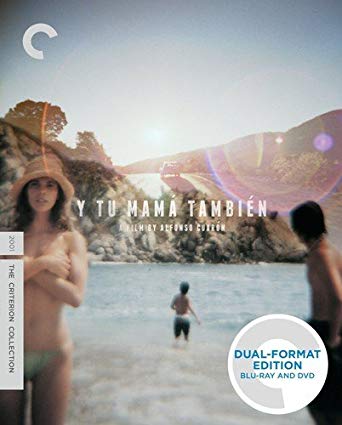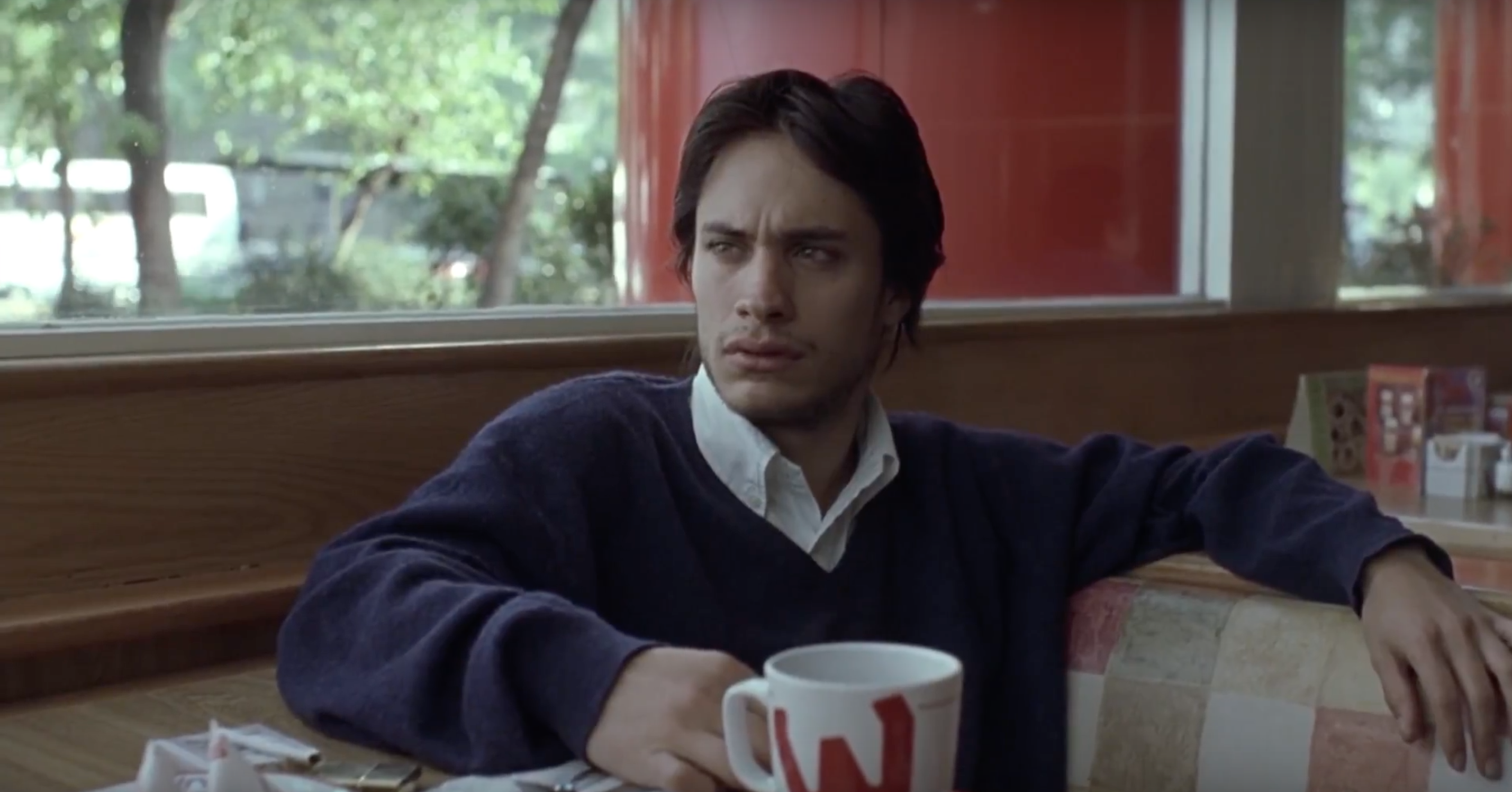 Michael Cusumano here to add a title that is near and dear to my heart to the New Classics pantheon
Michael Cusumano here to add a title that is near and dear to my heart to the New Classics pantheon
Scene: Epilogue
The Narrator in coming-of-age stories most often represents a grown-up version of the protagonist. Think The Sandlot or A Christmas Story, or the quintessential example, The Wonder Years, voices looking back, awash in nostalgia. In Alfonso Cuarón’s Y Tu Mamá También not only is the narrator not a character, but the voice is indifferent, even coldly clinical in its omniscience, as likely to note the fate of a passing group of wild pigs as to reveal the deepest secrets of the protagonists.
We get used to the voice as a welcome companion throughout the film. Its flat, objective viewpoint is a welcome respite from the main trio’s frequent emotional upheavals. Little do we realize we are being set up for the emotional gut punch of the film’s epilogue...

The final scene picks up with Julio and Tenoch (Diego Luna and Gael Garcia Bernal) unexpectedly running into each other a year after their road trip with a sexy older woman (Maribel Verdu). Right away the narrator draws blood, explaining that the two agree to grab coffee because “going for a cup of coffee was easier than making excuses to avoid it” a viciously succinct summary that goes against everything with just witnessed, not to mention the iron clad cinematic law that road trips bring characters closer together. We’ve just seen these two conjure Heaven’s Mouth beach out of their wild fabrications and into existence. How could they grow apart so fast?
Still, even if their connection has faded we suspect we know what might rekindle it: Luisa, the catalyst for the journey and the soul of the film. After some small talk, Tenoch drops the news we knew in our heart was coming. Luisa never left that beach, choosing to die there from the terminal cancer she kept hidden during the trip.
It’s not quite accurate to call this a twist. The film plainly shows Luisa going into a doctor’s office for test results early in the film. It omits the results, but it doesn’t take much to intuit what might motivate her to impetuously hit the road with the two young men who just finished charmlessly drooling over her at a wedding. The film essentially takes Luisa’s side. If she wants to escape her mortality by going on an adventure with these two immature horn-dogs, then it will do its best push this darker, sadder story under the surface. We think back over the story and realize that for all its exhilarating sun-drenched sexuality, death was perpetually creeping in at the edge of the frame, from the roadside funeral procession to Luisa’s story of losing her virginity, which starts with the guys cackling over the dirty parts, and ends with her boyfriend dead from a motorcycle accident at seventeen.
The guys absorb the information and the sound drops out one final time for Cuaron to drop the hammerblow he prepared for us. As the narrator summarizes Luisa’s final weeks at the beach Tenoch gets up to leave. The narrator informs us with horrible finality “They will never meet again”. The sound returns just in time to hear the guys politely agree to see each other around.

The wistful ending is a staple of the coming-of-age movie in everything from American Graffiti to Superbad and Lady Bird. But those balance the bitter with the sweet. The hope that even if things can’t stay the same, they might turn into something new. Even those that indulge in a downer ending like Stand By Me, can’t resist looking back and marveling with weepy reminiscence “I never had any friends like the ones I did when I was twelve.”
Y Tu Mama’s narrator shuts down all such sentiment with brutal efficiency. In some ways the death of this friendship hits harder than Luisa’s. Her fate is poignant but she went out on her own terms and with full self-awareness. We sensed from the start that this was where her story was headed. There is no such poetry in the death of this friendship. Just the harsh recognition that even relationships that burn with volcanic intensity can be snuffed out with the simple application of distance and time (exacerbated in this case, by a difference in class).
The tragedy of our teenage years is that we acquire wisdom but we don’t recognize it until we are looking back years later. In the film’s final moments, Julio’s faces to the left - into the past - as his now-former best friend exits the frame to the right, into the future and out of his life. Julio’s eyes fill with tears, as he catches a glimpse of that big picture he and Tenoch managed to miss as their libidos dragged them helplessly from moment to moment.

Previously on The New Classics:
- A thriller takes an unforgettable detour into a jazz club
- A whole movie, spinning off a stealth inflection point
- A terrifying man pauses for reflection
- Naked desperated violence in an all-time great fight scene
- A villain collapses in one of the great comeuppances